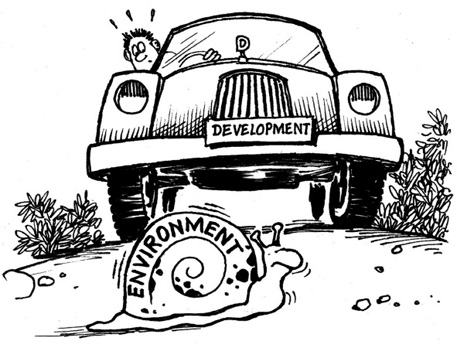By Rachel Bouvier of rbouvier consulting.
Sustainability has become a buzzword in certain circles but what exactly does the word mean?
In the economic development sector, a sustainable economy is one that meets the needs of the present generation without compromising the ability of the future generations to meet theirs. Even that definition is full of nuance and ambiguity. But it’s clear that sustainable development implies some sort of shift from “business as usual,” and an acknowledgement that we must consider our impact on future generations in our pursuit of economic prosperity. (United Nations General Assembly, 1987)
Smart growth is likewise another buzzword in planning and economic development that implies some sort of restraint on runaway economic growth. Nonetheless, by virtue of even including the word “growth,” it is viewed with suspicion by some hardcore environmental advocates. They question whether economic growth in any form can be compatible with sustainability.
Visit our ‘What is Smart Growth?‘ page for more information
The principles of smart growth should be familiar enough to any readers of this blog. Kaid Benfield, the co-founder of the Smart Growth America coalition summarizes them as “by building homes, shops and services on vacant and underutilized land left in our older communities by decades of disinvestment, and by building in more compact development patterns with more efficient transportation links, we can reduce the spread of environmental harm and growth in emissions while conserving valuable wilderness and rural land outside of the development footprint” (Citation: Urban Land Institute Blog). So it’s clear that smart growth is at least more environmentally friendly than business as usual.
But is that enough? In his provocative blog post, Benfield argues that, no, we need to go further. He points out that even if we manage to concentrate growth in the urban core, even if we reduce sprawl and miles traveled and even automobile traffic, that doesn’t go far enough.
The three pillars of sustainability (sometimes called the triple bottom line) are economy, environment, and society and they must be considered as a whole, not individually. If we build a high scale retail establishment on under-used land in the middle of downtown, does that advance goals of sustainability if it doesn’t serve the needs of the people who live in that community? If we increase housing density, but that housing isn’t priced at levels attainable to the average worker in that community, does that advance the goal of sustainability? Benfield’s answer, and my answer, is no. “Smart growth” is necessary, but not sufficient.
Advocates of smart growth – as it should be practiced – would argue that if we follow the ten principles of smart growth (listed at the end of this blog post), we would be on our way to sustainability. Maybe so, in practice, however, many projects that are touted as smart growth just focus on one narrow objective – reusing under-used space, for example, or increasing density. We need to take a step back to consider all projects through the lens of sustainability – economic, environmental, and social. Then, perhaps, we can answer the question posed in the title of this blog post with a resounding “yes.”
To this end, GrowSmart Maine has introduced our first ever Maine Smart Growth Awards, awards designed to recognize the diverse activities that contribute to smart growth and serve as real life illustrations of the benefits it brings. Check out the submission criteria, and nominate your favorite Smart Growth (and sustainable) project today!
Visit our ‘What is Smart Growth?‘ page for more information
Ten Principles of Smart Growth
- Mix Land Uses
- Take Advantage of Compact Building Design
- Create a Range of Housing Opportunities and Choices
- Create Walkable Neighborhoods
- Foster Distinctive, Attractive Communities with a Strong Sense of Place
- Preserve Open Space, Farmland, Natural Beauty and Critical Environmental Areas
- Strengthen and Direct Development Towards Existing Communities
- Provide a Variety of Transportation Choices
- Make Development Decisions Predictable, Fair and Cost Effective
- Encourage Community and Stakeholder Collaboration in Development Decisions
Rachel is the Treasurer of the Board at GrowSmart Maine, owner operator of rbouvier consulting, and lives with her family in Portland.

